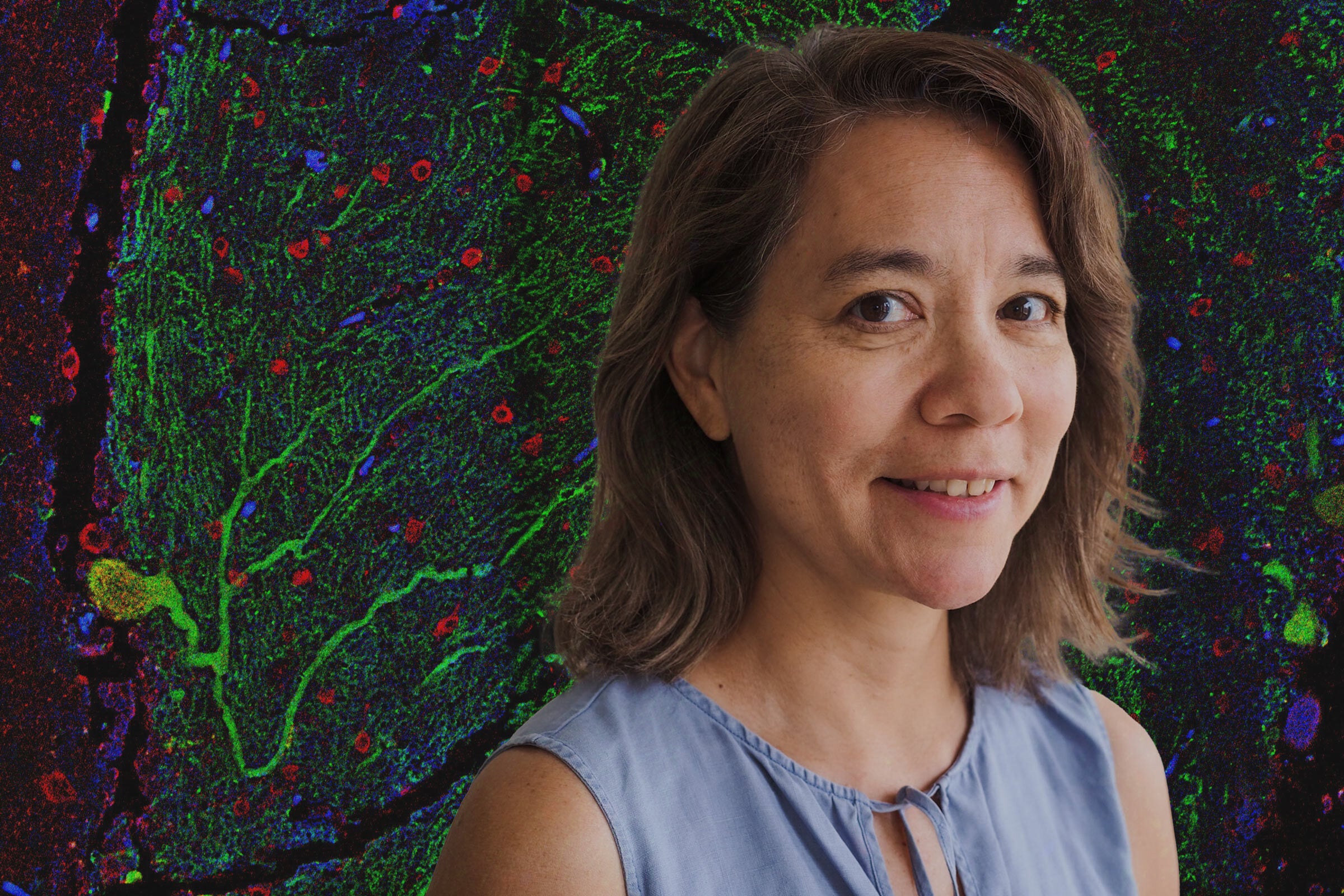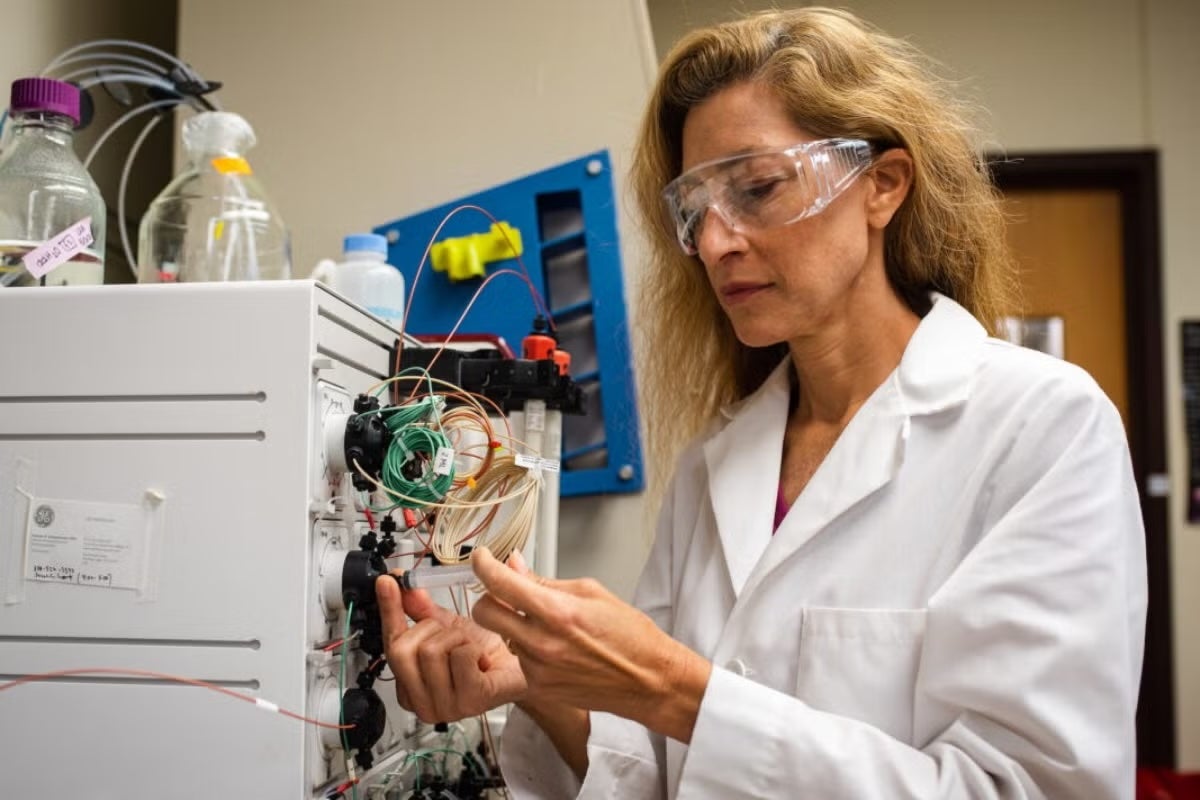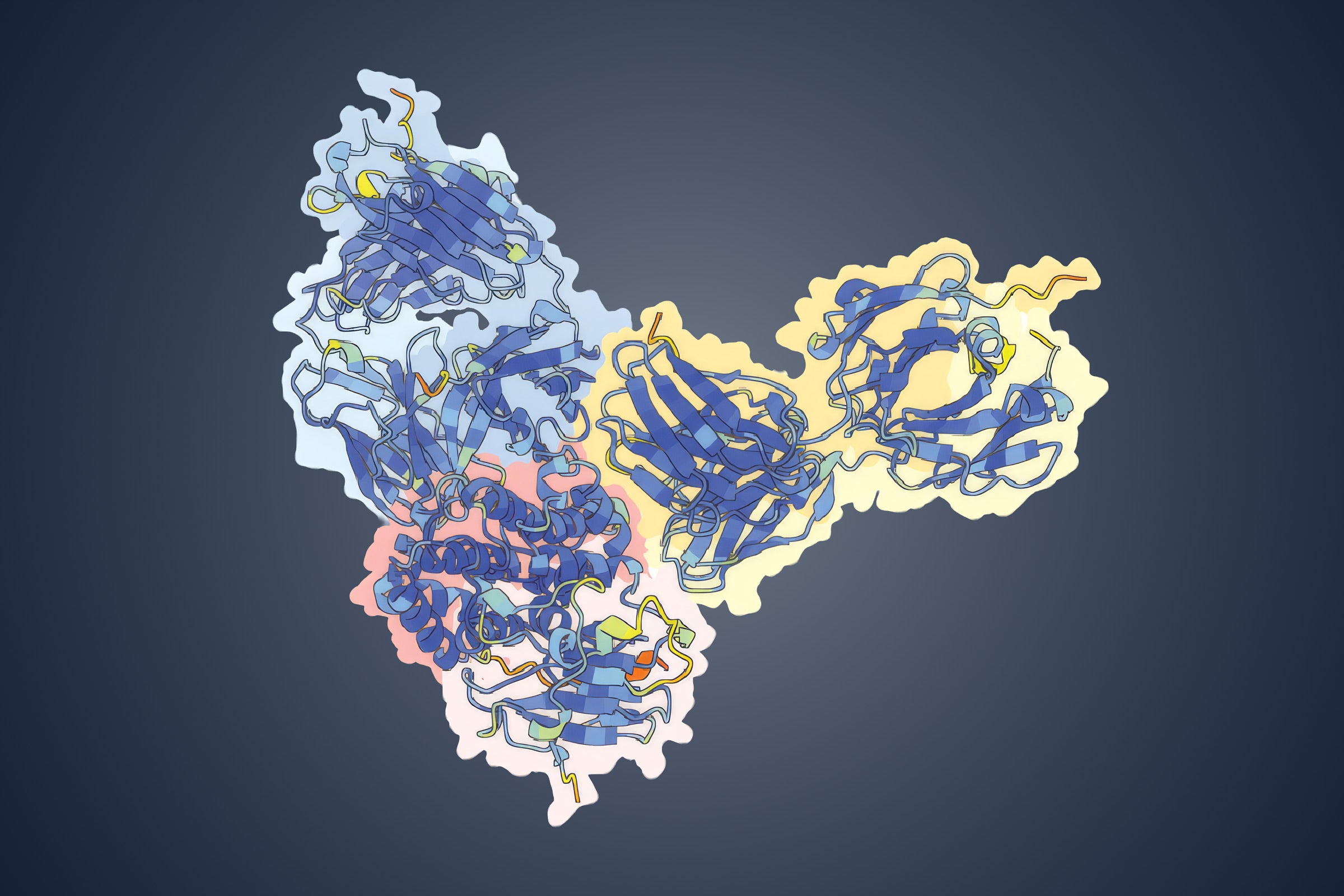News: Molecular Biosciences
Read the latest news from the College of Natural Sciences at The University of Texas at Austin
Tanya Paull Selected as Fellow of American Society for Biochemistry and Molecular Biology
The professor of molecular biosciences at The University of Texas at Austin was one of 16 new fellows named.

UT News
Cytomegalovirus Breakthrough Could Lead to New Treatments
A new antibody design blocks cytomegalovirus from hiding from the immune system and could lead to safer, more effective treatments for vulnerable patients.

Biochemistry Major Tu-Quyen Dao is Integrating AI Into Healthcare
Tu-Quyen Dao, a senior biochemistry student, is studying how AI can be applied to improve healthcare.

AI Tips Off Scientists to New Drug Target to Fight Monkeypox Virus
The breakthrough could be used in a new vaccine or antibody therapy to fight mpox, the disease caused by the monkeypox virus.

New Gene-Editing Tech Holds Promise for Treating Complex Genetic Diseases
Advanced biotechnology repurposes two bacterial immune systems to correct large stretches of DNA.

UT News
5 Questions for Dima Kozakov
Could AI be the key to curing cancer? Meet the leader of a new research team putting that question to the test.

Virus Slayer Awarded ‘Genius Grant’ by MacArthur Foundation
The award recognizes Jason McLellan’s work to investigate how viruses infect our cells and to develop new treatments for infectious disease.

UT News
4 Tons of Spinach, 3 Professors and 1 Life-Changing Discovery
It was 84 years ago this week that UT researchers isolated and named folic acid.

UT Biodiversity Center
Announcing the 2025 Stengl-Wyer Scholars, Fellows and Grant Awardees
Stengl-Wyer Endowment-supported researchers and research at UT Austin will explore life in a variety of forms and environments.

The Oden Institute
Transforming the Use of AI in Drug Design
With support from the Cancer Prevention and Research Institute of Texas, molecular bioscientist Dima Kozakov joins UT.

